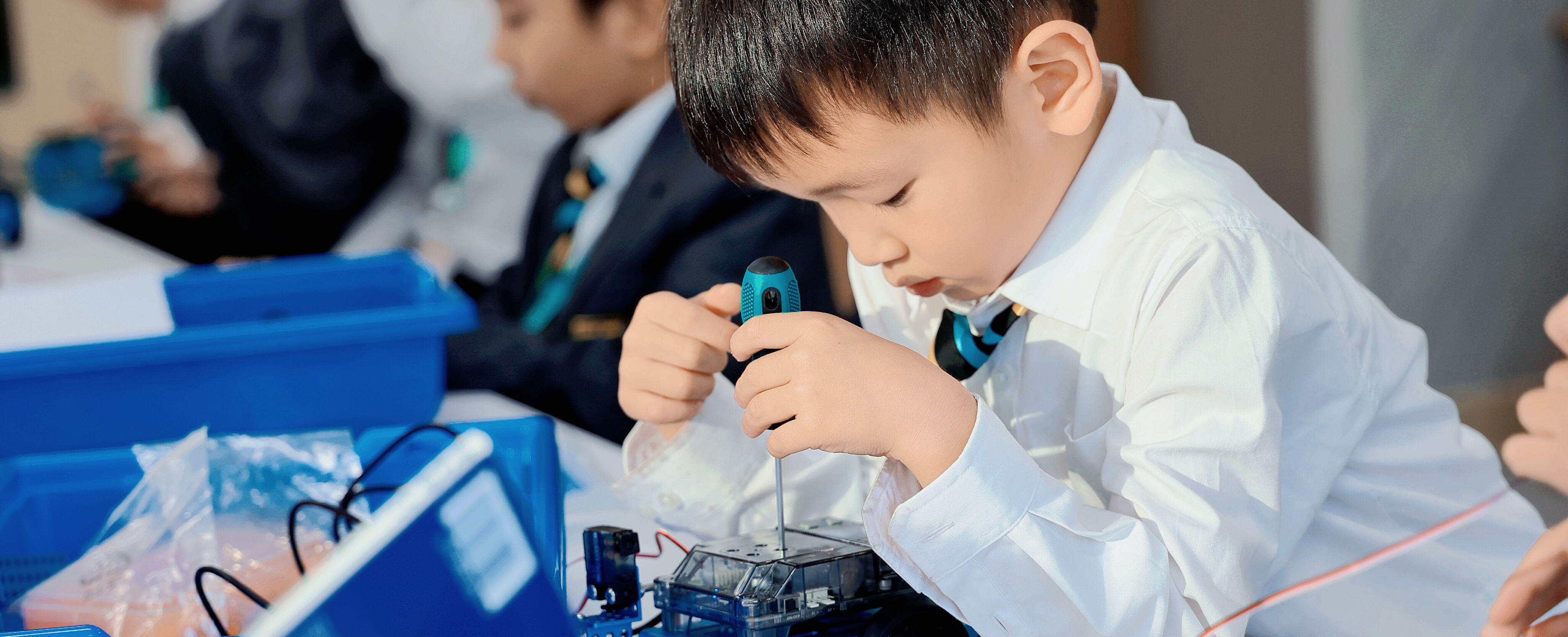
The learning of the mother tongue is important because for each individual it is not just a tool for communication, but an important determinant of one's way of thinking, cultural beliefs and self-identity.
At Nantong Hiba School, we want pupils to learn languages not just by remembering texts but also by using those texts to develop their comprehension, critical thinking, and writing skills. We aim to develop pupils' aesthetic sensibilities and thinking skills through the study of the Chinese curriculum. At the same time, they develop critical thinking skills, gain knowledge of China's extensive history and culture, and develop the ability to compare, value, and accept many civilizations.
Recently, pupils in Grade 3 have been studying Unit 6 of their language book which shows the beauty of our country in various ways.
Ask the question
Ms Wendy Li directed the pupils to scan the four texts in this unit of study, summarise the themes, and then pose questions about the topics. Questions included, “Are the sites in these texts real?”, “Where are they all located in China?”, “What transport do we need to take to get to these attractions from Nantong?”, “Is it still inhabited?”, “How many people?” and “What folklore or food is available there?”
Ms Li guided the pupils on a road of independent exploration by letting them make discoveries and come up with their own questions. Pupils are always at the centre of teaching and learning at Hiba Academy Nantong, and we encourage them to be the masters of their own learning. Encouraging pupils to think on their own through guided questions stimulates their curiosity and helps them to have a constant source of motivation on their learning journey.
Collect and organize information
Pupils targeted further independent study of the text to sort out the structure of the content and understand key words and phrases. Pupils then gathered more information about the sites they are studying from the internet, books or from life and sorted out what detailed information is needed to help solve the problem.
Some pupils wanted to know where the Xisha Islands were. They extracted the key information by studying the text: "The Xisha Islands are in the South China Sea and are part of Sansha City in Hainan Province". And then “Where are the South China Sea and Hainan Province?” Some pupils searched through maps, some went to the library to borrow books, and some searched for answers through the retrieval engine. In the process, pupils practise the ability to collect, distinguish and summarise information, and how to use this information effectively to assist in solving their own problems is also a focus of their learning.
Creating and displaying work
Once they had gathered the information they needed, pupils began to work in groups to create pieces to address the questions they had posed.
For example, creating a beautiful tourist calendar to introduce the small seaside town, with each month in the calendar centred around one topic. Geographical locations are introduced in January, regional foods are introduced in February, and well-known attractions are introduced in March. Pupils present Guangdong as they have observed it during the 12 months.
Or a story about a small seaside town through the story of two travellers. They encountered all kinds of problems when they first arrived in Guangzhou, the climate was too hot, the difference in eating habits etc. Pupils used the story of two travellers to tell us about the landscape of Guangdong.
Making a quiz game. Where are the Xisha Islands? How many species of fish are found there? What is the average year-round temperature there? Pupils wanted to use this little game to spread the knowledge they had gained while collecting in a fun way.
We marvelled at the imagination and creativity of our pupils. At the same time, the process of group production greatly enriches the pupils' vocabulary and language expressions. To solve the problems they encountered, pupils brainstormed, mulled over and compared their reflections. In the process, their independent learning skills are enhanced and their intellectual capacity is extended. Pupils' cognitive, communication, social, and self-management abilities were effectively exercised throughout this project.
Reflecting on the learning process
During the project, Ms Li also continued to guide the pupils to reflect and summarize the skills they had learned during the learning process. She also identified shortcomings and suggests ways to correct or improve them.
What responsibilities should I take in the group work?
What if there is a conflict when working in groups?
How do I convince people to listen to me?
What avenues are available for me to seek help when I need it?
With these opportunities for review and reflection, pupils are better equipped to pinpoint their project-related issues and either solve them on their own or seek assistance.
Through project-based learning, we hope to move language teaching away from a single textbook and create contexts for pupils to apply their knowledge. We want to help pupils build a strong foundation in their native language to express their feelings and thoughts appropriately and effectively.